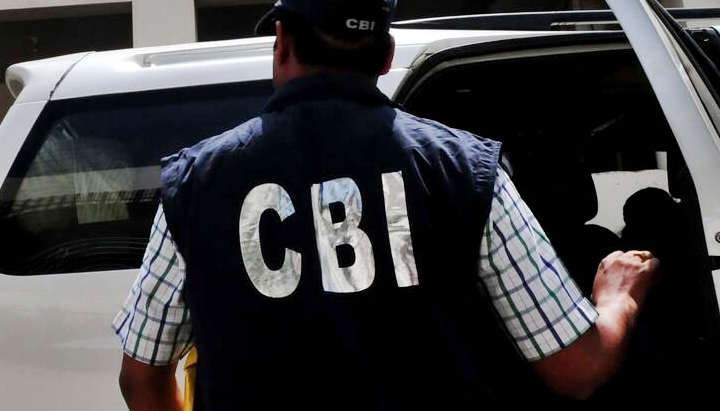Excelsior Correspondent
JAMMU, Feb 2: While dismissing bunch of petitions, High Court has held that Central Bureau of Investigation (CBI) is empowered with general consent to investigate offences in the erstwhile State of J&K.
A common question of law as to whether the Central Bureau of Investigation is vested with jurisdiction to investigate offences committed within the territorial jurisdiction of erstwhile State of Jammu and Kashmir prior to its bifurcation into two Union Territories, has arisen in all these petitions.
It was contended by counsels appearing for the petitioners that the Central Bureau of Investigation lacks jurisdiction to investigate the FIRs which have been impugned in these petitions because no consent in terms of Section 6 of the Delhi Special Police Establishment Act has been accorded by the erstwhile State of Jammu and Kashmir to the investigation of the instant cases.
According to the petitioners, the Central Bureau of Investigation, before undertaking investigation of the impugned FIRs, was bound to obtain consent of the State Government in individual cases in terms of Section 6 of the DSPE Act and because the same has not been done, as such, the CBI lacks inherent jurisdiction to investigate the impugned FIRs and to file challan against the petitioners.
After hearing battery of lawyers for the petitioners, Advocate General DC Raina for the UT and TM Shamsi for the Union of India, Justice Sanjay Dhar observed, “a bare perusal of the record reveals that the Government of Jammu and Kashmir has accorded a general consent to CBI exercising its jurisdiction in the State of Jammu and Kashmir for investigation of offences mentioned in the letter”.
“Had it been a case of consent on case to case basis then the particulars of the case, the particulars of the FIR or the facts of the case regarding which the consent was accorded would have been mentioned in the communication which is not the case.”, High Court said, adding “it contains particulars of as many as 13 categories of offences in respect of which Government of Jammu and Kashmir has accorded its consent in terms of Section 6 of the Act. It is not the case of the State Government that the person who has signed the communication was not authorized to do so or that the consent has been withdrawn at any stage by the competent authority”.
“The stand of the Government of the Union Territory is that it is not a general consent. The stand of the Government on the bare reading of the communication appears to be without any substance”, Justice Dhar said, adding “when the Government of India contemplated to include certain more offences in the notification under Section 3 and order under Section 5, a fresh communication was addressed by the Government of India to State Government on 22nd July, 1963 and annexed to the communication were the draft notification (Under Section 3) and the draft order (Under Section 5). The Government of Jammu and Kashmir vide its communication dated 18th December, 1963 conveyed its consent to the issuance of these draft notifications/orders, thereby according its consent to the jurisdiction of CBI to investigate additional classes of offences as well”.
“Both these consent letters have not been withdrawn and at least nothing is stated in the affidavit of the Government of Union Territory of Jammu and Kashmir in this regard, meaning thereby that both these communications conveying consent of the State Government were in force at the relevant time”, Justice Dhar said, adding “mere filing of affidavits in court proceedings by officers of the State Government contending that there was no general consent given by the State Government would not nullify the effect of the communications already addressed by the competent authorities of the State Government to the Government of India according consent to the jurisdiction of CBI to investigate certain offences in the State of Jammu and Kashmir”.
“These communications have been issued in exercise of powers under Article 166(2) of the Constitution. In order to withdraw these communications a similar method is required to be adopted by issuing communications authenticated by an authorized person under Article 166(2) of the Constitution”, High Court said.
High Court further observed, “in the face of the general consent accorded by the Government of Jammu and Kashmir to the jurisdiction of the CBI to investigate certain offences in the erstwhile State of Jammu and Kashmir no such specific consent is called for in the cases that are directly registered by the CBI as there is no question of any parallel investigation parallel investigation in such cases”, adding “thus, no separate or specific consent with regard to each case to be investigated by the CBI is necessary and it is only in cases where the FIR has been registered by the local Police and the investigation is sought to be transferred by the CBI, a specific consent is required”.
Justice Dhar directed the Registries of both the wings of High Court to delink all these petitions and list the same separately before the roster Bench for consideration on other legal grounds raised in the petitions on individual basis. Since the stay of proceedings before the Trial Court was granted primarily on the ground of jurisdiction of the CBI to investigate the impugned FIRs, as such, having regard to the answer rendered by this court to the question of law, the stay of proceedings before the Trial Court shall stand vacated.


